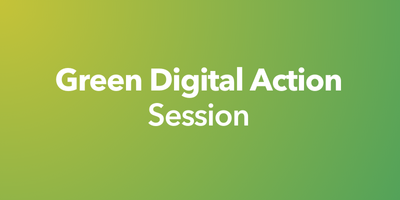High-level event convened by the UN Secretary-General on delivering Early Warnings for All and addressing extreme heat
November 13, 2024, 16:00-17:30
MR 22, Blue Zone
Launched in 2022 by the UN Secretary-General, the Early Warnings for All initiative (EW4All) calls for every person on Earth to be protected by an early warning system by the end of 2027. Multi-hazard Early Warnings Systems (MHEWS) are an integral tool for countries to adapt to the changing climate and to avert, minimize and address losses and damages caused by hazardous events. EW4All focuses on building national capacity and systems while integrating coordinated and scaled up support, as needed, with a particular emphasis on Least Developed Countries (LDCs), Landlocked Developing Countries (LLDCs), Small Island Developing States (SIDS), and fragile and conflict affected contexts. The initiative has gained high-level political support to address the early warning gap, and was recognized by the COP28 UAE Consensus, the Global Goal on Adaptation and Pact for the Future. Building on the momentum, there is a need for further action ahead of 2030.
2024 is on track to be the hottest year on record. Crippling heat is everywhere. Billions of people around the world are wilting under increasingly severe heat driven largely by a fossil-fuel charged, human-induced climate crisis. More than 70 per cent of the global workforce – 2.4 billion people – are now at high risk of extreme heat. The most vulnerable communities are hit hardest. In response to the rapid rise in the scale, intensity, frequency and duration of extreme heat, UN Secretary-General António Guterres on 25 July 2024 launched a Call to Action on Extreme Heat to underscore urgent and concerted effort to enhance international cooperation to address extreme heat in four critical areas: Caring for the vulnerable – Protecting workers – Boosting resilience of economies and societies using data and science – Limiting temperature rise to 1.5°C by phasing out fossil fuels and scaling up investment in renewable energy.
With human-induced climate change leading to more extreme weather conditions, including extreme heat, the need for early warning systems is more crucial than ever. Systems that warn people of impending extreme heat, storms, floods or droughts are not a luxury but a cost-effective tool that saves lives, reduces economic losses, and provides a nearly tenfold return on investment.
Under the leadership of UNDRR, WMO, ITU and IFRC, the implementing partners of EW4ALL have made focused efforts to fast-track implementation in 30 countries. This collective action offers valuable learning and insights, which will help inform and inspire further scale-up. These countries, along with partners, will share their experiences to bolster ambition for the initiative and support its expansion. Partners will present their journeys in supporting countries, aiming to inspire others to join in. We are doubling down on our efforts to enhance early warning systems and ensure broader reach and impact.
The moment is right. A striking 88% of Least Developed Countries (LDCs) and Small Island Developing States (SIDS) that have submitted their Nationally Determined Contributions (NDCs) already prioritize MHEWS. Furthermore, every National Adaptation Plan (NAP) prepared to date includes MHEWS. Now, we must turn these commitments into tangible actions, ensuring these priorities translate into real-world impact for communities on the frontlines of climate risks. Yet to date, just over half of all the countries worldwide report having the capability to alert their citizens about impending weather and climate hazards. Fewer than half of LDCs and only a third of SIDS have such systems, suggesting that these country groups still require sustained focus and assistance. To achieve the goal of protecting every person on Earth by 2027, all actors involved in the early warnings to early action value chain must work together, through unprecedented collaboration.
A high-level event will be organized at COP29, to stock take on the implementation of EW4ALL and the global response to call to action on extreme heat, with participation of leaders from developed and developing countries, financiers, private sector and CSO representatives.

